12th-14th September 2022
Venue, Swansea University, Wales UK

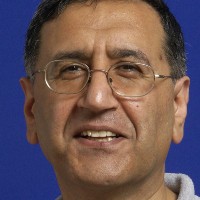
Professor Tariq Butt
Swansea University
Biocontrol and Natural Products (BANP) group
Bio:
Tariq's area of expertise is in the development of biopesticides for control of invertebrate pests of socioeconomic importance, especially pests impacting on food security and human and animal health. He has great experience in developing entomopathogenic fungi (EPF) and semiochemicals (attractants, repellents, antifeedants etc) which are deployed in innovative integrated pest management (IPM) programmes (e.g. "lure & kill", "stress & kill"). He works closely with industry, assisting in the development of new products or strategies that enhance the efficacy of the control agent. He has generated several patents with some IP being licensed to industry. Tariq also works closely with government agencies on matters related to the risk assessment and registration of EPF and other biopesticides.
Dr Ian Baxter
Head of Development and Regulatory Affairs at Biobest Sustainable Crop Management
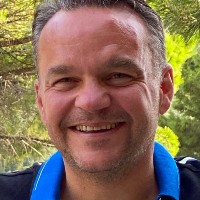
Bio: Ian is Head of Development and Regulatory Affairs for the Biobest Group NV and Vice President of the UK’s arm of the IBMA (International Biocontrol Manufacturer’s Association). The IBMA is the voice of the Biocontrol technologies industry and represents all its members to promote them and bring to the market via proportionate regulation these green innovative and effective technologies for sustainable agriculture, allowing the farmers to grow healthy, productive and profitable crops.
Asides from his IBMA role (which is voluntary) Ian is also Honorary Visiting Fellow to the Department of Biosciences at Swansea University, where he enjoys a particularly long-lasting and active collaboration with Professor Butt in a variety of areas of sustainable pest management.
Ian’s twenty five year career has been spent almost entirely in the biorational crop protection area, where he has held a variety of research, development and registration roles. Prior to this, Ian obtained a PhD from Southampton University on the uses of pheromones and entomopathogenic fungi against stored product pests.

Professor Jon West
Rothamsted Research Centre Harpenden, UK
Session: IPM Challenges and Solutions
Bio: Jon is a senior research scientist at Rothamsted Research, leading a team working on applied multi-disciplinary crop protection projects, particularly in plant pathology and aerobiology. He has been at Rothamsted since 1997, the focus of this work has been on the biology and control of fungal diseases, measurement of plant disease resistance, early detection of diseases by optical sensing and monitoring dispersal of airborne spores. Recent work on airborne spores has led to new methods for inoculum detection and forecasting, and monitoring changes in pathogen populations. Optical sensing research can be used for phenotyping responses to pathogens and for early detection of infection. Jon works on a wide range of systems including diseases of wheat, oilseed rape, potatoes, beet and tomato. He has experience of working with agricultural personnel and scientists at all levels and was a member of the EFSA Plant Health Panel (2015-2018), secretary of the BCPC diseases working group and a member of both the Association of Applied Biologists and the British Society for Plant Pathology.
Dr Owen Jones
Lisk and Jones Consultants Ltd, Wales
Lisk & Jones Consultants provide clients with the highest standard of support and innovation in technological and market evaluations in the fields of biopesticides, biostimulants and other life science sectors.
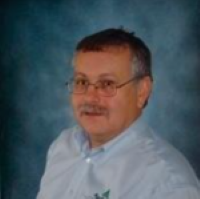
Session: Botanicals, Semiochemicals, pest monitoring, orchard & field crop IPM
Bio: Prior to joining Lisk and Jones full time in 2012 Owen was responsible for Global Strategy at Suterra LLC, Oregon, USA and was based at AgriSense BCS Ltd. He was responsible for early-stage technical and scientific issues within the company, liasing with external research and development partners as well as directing the company’s own longer term development activities. He was also the President of the International Biocontrol Manufacturers’ Association (IBMA) for two years and on the board of IBMA for five years prior to that.
Owen has published widely in scientific journals and text books on Integrated Pest Management and is regularly invited to give talks on the subject or chair meetings on the technology. He is also very interested in the field of Technology Transfer between Academia and Industry and has served on steering committees of organisations and initiatives set up to facilitate the process.

Dr David Hunter
Consultant to the Asian Development Bank, Australia
Session: Microbial BCAs
Bio: David is an international locust expert who has worked on locusts in many parts of the world and is currently President of the Orthopterists’ Society. He was a leading part of the team that implemented the use of Metarhizium, a naturally occurring fungus, as a biopesticide in Australia and helped introduce this biopesticide to a number of other countries. David is an ADB consultant on Integrated Pest Management, an integral part of the climate adaptive agricultural practices required to ensure food security.
Dr Farooq Shah
Swansea University
RAZBIO ltd
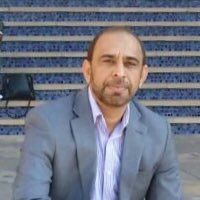
Session: IPM New Products and Strategies
Bio: Dr Farooq Shah is Manager of the Natural Products BioHUB, a Swansea University collaboration with Swansea Council to bring together academia, industry and community to pioneer the use of sustainable natural products. He is also founder and CEO of Razbio limited, a biotech company specialising in the development of Biopesticides and smart insect pest monitoring. Dr Shah has diverse fundamental and applied research experience of biological control of insect pests, having successfully completed five industry led R&D projects, aimed at developing novel solutions and products for environmentally friendly insect pest control. His current research interests include; improving the monitoring of insect pests and developing strategies for enhancing the efficacy of bio-pesticides. Dr Shah is also leading a consortium of UK and Pakistan based academia, industry and policy makers to establish a biopesticide hub in Pakistan to support capacity building and biopesticide uptake in Pakistan.

Professor Peter North
Swansea University
Geography Department
Session: Remote Sensing and UAV's
Bio: Peter's area of expertise is in the use of global satellite remote sensing to improve understanding of climate change, forest resources and in particular the role of land/atmosphere interactions. He has developed a widely used model of light transport for the optical domain (FLIGHT), based on Monte Carlo solution of radiative transfer (North, IEEE 1996). This is used to model vegetation photosynthesis and light use efficiency, to relate satellite-measured spectra to land surface properties, and has recently been extended to model light detection and ranging (LiDAR) (North et al., 2010, Morton et al., 2014). The forcing by atmospheric aerosols is currently a key uncertainty in climate change models, and in accurate measurement of the Earth's reflectance. He has also developed a method for simultaneous estimation of atmospheric aerosol loading and surface reflectance, applicable to multi-angle imaging sensors (North, 2002, Bevan et al., 2012). The method has now been operationalised for the European Space Agency instruments ATSR-2 and AATSR under the ESA Climate Change Initiative.
Dr Caroline Reid
Bioline Agrosciences Ltd
Bioline AgroSciences Ltd produces and markets a wide range of invertebrate biological control organisms which are used for control of insect pests in a variety of crops.
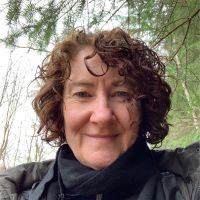
Session: Registration and the future of macrobials
Bio: Caroline is one of two Senior Technical Specialists at Bioline Agrosciences responsible for giving near market technical advice and managing commercial trials. Caroline has worked in the Horticultural industry for thirty years since gaining her PhD at the University of Lancaster in Plant Biochemistry. She worked at the R&D sites at GCRI Littlehampton and Stockbridge House, followed by a technical/ and commercial role at Bioline Agrosciences for twenty years gaining experience of successfully developing and implementing biocontrol in a commercial environment.
Now responsible for technical support across Northern Europe and North America Caroline visits customers and growers regularly to maintain contact with the market and any new developments which may be required. Caroline is currently the UK Chairwoman of the International Biocontrol Manufacturers Association (IBMA) and the Co-chairwoman of the Global IBMA Invertebrates Group.

Dr Will Allen
Swansea University
Department of BioSciences, Geography and Physics
Session: Computational Science Applications to Pest Management
Bio: Will is an evolutionary ecologist who conducts multi-disciplinary research into sensory systems, signalling, camouflage and life history. His goal is to apply fundamental scientific knowledge to tackle pressing environmental and conservation challenges. To do so he uses phylogenetic comparative approaches, observational and experimental field work, and computer vision techniques. His areas of expertise are: Evolutionary Ecology, Signalling and Communication, Antipredator Adaptations, Life History Evolution and Sensory systems.
Dr Steve Edgington
CABI UK Centre
CABI is an international, inter-governmental, not-for-profit organization that improves people’s lives worldwide by providing information and applying scientific expertise to solve problems in agriculture and the environment.
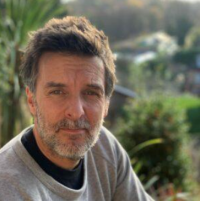
Session: Multifunctional Microbes-Endophytes, growth/resilience stimulants
Bio: Steve is the Team Leader of CABI’s Biopesticides Group and Principal Nematologist at CABI’s UK Centre. He has been working on protecting crops using biologicals for over twenty-five years and started his career as a biopesticide research scientist in Mexico. For the last twenty plus years he has worked for CABI investigating a range of pests and biologicals on various cropping systems, in the Middle-East, Latin America, Europe and Africa. Steve is heavily involved in CABI’s Bio Protection Portal and is responsible for the product data that goes into the site.

Dr Jim Bullock
iFormulate Ltd
UK
Session: Formulations
Bio: Jim is a Director, co-founder and co-owner of iFormulate Ltd, a company founded in 2012 which delivers consultancy, innovation, R&D support and training in the field of formulation and chemical science and technology. Previously Jim was CEO of Intelligent Formulation Ltd which promoted formulation technology in the UK. After a D.Phil from Oxford, Jim led R&D projects in imaging at Ilford Ltd and activities on crystal engineering and dye formulation and chemistry at ICI/Zeneca. At BASF, in UK and Germany, Jim headed formulation development for colours and held marketing, strategy, R&D and regulatory affairs functions for BASF’s global biocides business. Jim was also a board director of Agion Technologies, USA.
Dr Khalid Mahmood
Rothamsted Research
UK

Session: Decision making and long term planning for successful IPM
Bio: Khalid is trained as an agriculture economist with a PhD from the University of Gottingen Germany. He has previously worked with the Royal Agricultural University and various other industry organisations. Khalid is an Innovation and Partnership manager and project manager for the Environment Futures Impact Lab- a multi partner ERDF project involving big data science and environment futures. His interests are to engage with agritech industry to understand their challenges and work with researchers to develop innovative solutions around IoT, data visualisation and interpretations.

Dr Steven Arthurs
BioBee
USA
Concluding Session: advances and opportunities for RD&I in New IPM
Bio: Steven is an Entomologist with fifteen plus years of experience in insect ecology, management and plant protection. Steven's current work focuses on the use of beneficial insects in agricultural pest management. He is the Field and Technical Support for BioBee Biological Systems, a leading provider of Biologically based Integrated Pest Management, whose products are sold in over fifty countries.
Speakers
We are delighted to provide information on some of our confirmed speakers so far
Jennifer Lewis
IBMA Executive Director
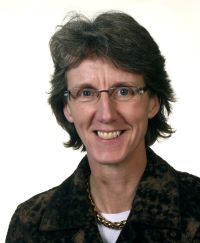
Title of talk: Challenges and opportunities for IPM
Bio: Jennifer Lewis was appointed as IBMA Executive Director in 2019. She is passionate about IPM, reducing the reliance on traditional pesticides through the uptake of these integrated programmes of pest and disease control in crop production throughout Europe.
Prior to IBMA, she was Head of Innovation and Development for IBMA Member Certis Europe and part of their Management Board. Jennifer was responsible for the development and previously the registration of Certis’ portfolio in Europe. She has worked on building the Certis Europe range of biocontrol products integrating them into IPM systems and advocated for the practicalities of reducing reliance on pesticides, while retaining agricultural yields.
Jennifer has worked in crop protection since she graduated, including testing the environmental effects of pesticides in Brazil, the US and Australia and latterly in various marketing, regulatory and stewardship roles in the US and Europe.
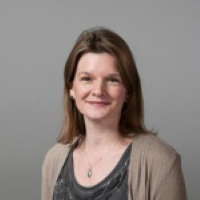
Dr Samantha Cook
Rothamsted Research, a world-leading, non-profit research centre that focuses on strategic agricultural science to the benefit of farmers and society worldwide.
Title of Talk: IPM – Oil Seed Rape Pests
Bio: Sam is working towards the development of ecologically-based tactics for integrated pest management (IPM) that will help farmers to sustainably intensify production while minimising negative environmental impacts, particularly those associated with insecticide use. She has a wide knowledge of the pest ecology of arable crops with particular interest in oilseed rape, and on control of pollen beetle and cabbage stem flea beetle.
Dr Matthew Back
Harper Adams University, UK
Department of Agriculture and Environment

Title of Talk: Cover crops for pest control
Bio: Matthew is a reader in Nematology, his research interests are in plant nematology - particularly Globodera spp, Pratylenchus spp and Ditylenchus spp. Disease complexes involving nematodes and soil borne pathogens. Biofumigation of crop pests and diseases. Management of diseases caused by Rhizoctonia solani. Sustainable/Non-chemical methods of pest and disease management. The majority of his recent work has focussed on the use of biofumigation for the management of potato cyst nematodes.
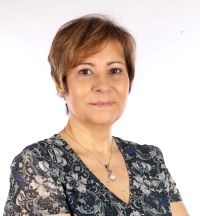
Adriana Escudero-Colomar
IRTA (Institute of Agrifood Research and Technology)
Department of Climate Action, Food and Rural Agenda of the Generalitat de Catalunya, Spain
Title of Talk: Area-wide management of codling moth and oriental fruit moth
Bio: Adriana Escudero-Colomar is a researcher at IRTA (Institute of Agrifood Research and Technology) belonging to the Department of Climate Action, Food and Rural Agenda of the Generalitat de Catalunya. Her lines of research focus on the development of various pest control systems (mass trapping, attract and kill, mating disruption, biological control) for fruit pests both at the orchard level and in an area-wide approach. These systems are combined with the use of agrochemicals to design ad-hoc Integrated Pest Management strategies to not only control pests but also to produce fruits without residues.
Dr Mark Whittaker
APIS (Applied Insect Science) a dedicated consultancy and contract research laboratory for biopesticides and other low-risk crop protection technologies.

Title of Talk: IPM Regulatory Matters
Bio: Mark is the Managing Director and co-owner of APIS. He is an entomologist with a research background in crop pest biology and has twenty years’ experience in the biopesticide industry. With a reputation for his pragmatic approach to regulatory problem solving he has expertise in the design and adaptation of ecotoxicology studies for microbial pesticides. He has assembled a team of uniquely talented people who make APIS one of the world’s most innovative contract research labs and the leading regulatory consultancy for biopesticides.
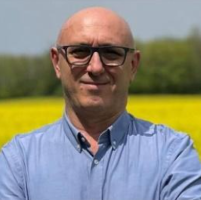
Arben Myrta
Certis Belchim B.V, Utrecht, The Netherlands
Certis develops and provides crop protection solutions for growers to help them meet market demands and produce healthy crops.
Title of Talk: Bionematicides in the European Union-opportunities and challenges
Bio: Arben has vast experience in Crop Protection, first as researcher at various Universities and international organisations and later, as product development manager within the industry. His core skills lie in plant pathology and nematology, linked with the development and registration of new pesticides and biopesticides, both at EU and national level.
Carlo Malavolta
Emilia-Romagna Regional Government, Italy
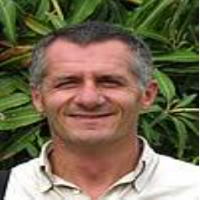
Title of Talk: Experience in application of IPM and integrated production
Bio: Carlo is in charge of the planning, organisation and co-ordination/ management of research, experimentation and technical support in the sector of cultivation with particular reference to Integrated protection, biological and integrated production aimed to reduce environmental impact from pesticides. His role also covers the use of information systems, data base on agronomic data/ biologic and meteorological and forecasting models.

Dr Peter Lüth
The Toothpick Project, Germany
Title of Talk: Seed treatment to control Striga hermonthica
Bio: Peter is an independent Consultant on BioControl. He is a board member for the Toothpick Company, Kakamega, Kenya. Toothpick develop and deliver innovative biotechnology to smallholder farmers. Striga, a weed that affects nearly 40 million farms in sub-Saharan Africa, can completely ruin a farmer’s harvest. By selecting for specific strains of the fungus FOXY, farmers can use biological solutions, instead of chemical herbicides. When crop yields increase, farmers are able to feed their families better and improve their lives.
Hermann Strasser
University of Innsbruck
Department of Microbiology, Austria

Title of Talk: Biological Control of soil dwelling pests with endophytic fungi-
Bio: Hermann has been leading the biological pest control team at the Institute of Microbiology (BIPESCO Team Innsbruck) since 1995. He has undertaken research on the control of Coleoptera (i.e. scarab, weevil and diabrotica), Lepidoptera and ticks with entomogenous fungi like Beauveria brongniartii and Metarhizium anisopliae.
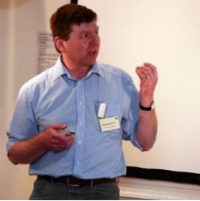
Norman Carreck
Carreck Consultancy and Bee Publishing Ltd
Title of Talk: Honey bees - an effective vector to deliver beneficial microbes
Bio: Norman Carreck has been keeping bees since the age of 15. He studied Agricultural Science at Nottingham University and has worked as an official beekeeper, with responsibility for maintaining about 80 colonies of honey bees, while also researching pollination ecology, bee behaviour, bee pathology and forage for bees. Since 2008 he has carried out research at the University of Sussex on bee breeding and pesticides and bees, worked as Senior Editor of the Journal of Apicultural Research and been employed as Science Director of the International Bee Research Association. He has a National Diploma in Beekeeping and is a Fellow of the Royal Entomological Society and of the Royal Society of Biology. He is a member of the Bee Health Advisory Forum for the DEFRA 'Healthy Bees Plan' and is the UK member of the Executive Committee of the international honey bee research network, COLOSS.
Anna Higley
CRODA
Developer and manufacturer of sustainable high-performance ingredients and technologies.
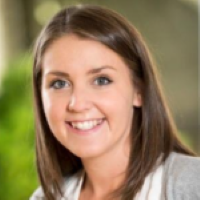
Optimising bioprotection products through innovative formulation design
Bio: Anna is the Market Applications Specialist in crop protection for the EMEA region. Anna works closely with customers to understand market needs and to identify novel areas of collaboration or new product development. Most recently, Anna has led Croda’s developments in relation to the biologicals market.
